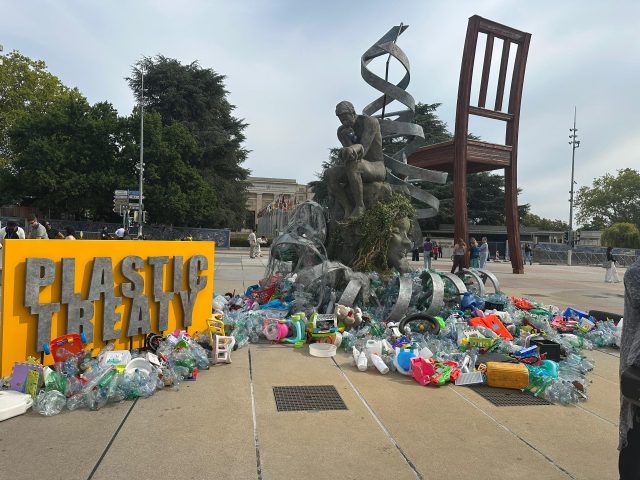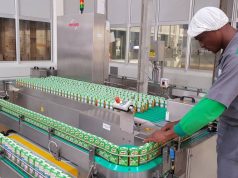The global conference to create a legally binding treaty to end plastic pollution ended in a gridlock, with many participants decrying the decision of producing parties to shift attention towards improving plastic waste management instead of addressing plastic from source to consumption, a disregard for the sheer impacts of plastic on humans, animals, and the environment at large.
Since its discovery, synthetic plastic has played a central role in the Industrial Revolution and modern civilisation, being the most used attachment in the manufacturing of all types of finished goods, including electronics, furniture, automobiles, sports utilities and fashion. Although its initial introduction to the manufacturing industry in 1907 came as a breakthrough as a cheaper alternative that drastically reduced the cost of production and enhanced the manufacturing process, its single-use business model by far contributes to the social and environmental impact it has today, having replaced many essential alternatives such as bottles, ceramic and metal foils. Today’s plastics are ominously used by all, and their micro form can be found virtually in everything in the air, water, in plants and even the bloodstreams of animals.
Studies indicate that more than 1,500 species in marine and terrestrial environments are known to ingest plastics. Over one million marine animals die each year from plastic pollution. Also, a 2023 Tearfund study estimates that 218 million of the world’s poorest people are at risk from more severe and frequent flooding caused by plastic waste. Of this population, 41 million are infants, elderly people or people with disabilities who are at particularly high risk of severe health conditions. Plastic debris blocking drainage and waterways has also contributed to municipal flooding, causing the destruction of limited infrastructure, the displacement of people, the death of humans, and livestock.
The Guardian also reported that the life cycle of plastic from production to consumption dumped into landfills induces a myriad of health challenges, including cancer, lung disease and birth defects.
The imperative to address plastics as a modern inhibitor of sustainable consumption and environmental conservation may therefore be justified given the overwhelming evidence of its existential threats to not only humans but to the entire planet. This urgency, therefore, calls for a binding agreement to curb further implications of plastics and, as such, justifies the UN convening a series of negotiations to deliver the world’s first plastic treaty under the aegis of the International Negotiating Committee (INC).
The INC is the product of the 5th session of the UN Environment Assembly, which adopted a historic resolution to develop and adopt an international legally binding instrument (ILBI). First held in November 2022 in Punta del Este, Uruguay, the session hosted parties from over 100 countries to address the common problem. Since then, the negotiations have been an endless marathon with parties already meeting 6 times between November 2022 and August 2025, with the latest INC5.2—anticipated to be the decisive treaty to find a conclusive agreement— ending in another gridlock.
Graham Forbes, head of the Greenpeace delegation in Geneva, described the situation as a disappointing outcome.
“We are going in circles. We cannot continue to do the same thing and expect a different result,” he said.
While the most popular consensus outside the negotiating rooms supports the narratives to find lifetime solution to plastics, dominant voices from the plastic manufacturing industry and parties representing oil-producing states such as Saudi Arabia and Russia, favour an integrated circular economy and waste management literacy as a saving grace for retaining plastic production until global oil production is completely phased out, thus framing recycling as a viable solution to stopping plastics in its entirety.
Ross Eisenberg, president of America’s Plastic Makers, while speaking to the BBC, supported this idea, describing plastics as fundamental for modern life. “They go in everything. Focusing on ending plastic pollution should be the priority here, not ending plastic production,” he said.
The oil and gas and largely the manufacturing industry has contributed immensely to the industrial revolution of the past 70 years, pre-dating the digital revolution and even providing energy and hardware respectively, for the new digital era. However, plastics were a notable element of that era with a production scale of over 460 million metric tonnes annually, of which an estimated 20 million ended up polluting our environment. This figure is expected to reach 1.7 billion metric tons by 2060.
It is no surprise that despite the obviously visible and measurable impact of plastics on the environment and by extension daily human lives, a convention of such magnitude poised to find a middle ground has stalled.
The rationale to explain it further assess plastics along with its closest allies, oil and gas. Although packaged differently, plastic (in its various forms) are derivative products of the catalytic distillation of crude oil. Being a less needed product in the value chain from historical context has made it cheaply available for commercial production and in turn, public consumption. Its impact and use, however, has made it become a ubiquitous and indispensable product of modern society. Arguably the most demanded commodity across all agriculture, fashion, automobiles, education and other industries, plastic subtly ranks as one of the most profitable businesses of the century, retaining its status quo as the cheapest commodity easily accessible and affordable by all regardless of socioeconomic status.
This backdrop is a simple highlight of the business interest against a plastic treaty that will cut production and add layers of support to the growing demand for transition away from crude oil and its derivatives. As long as the oil & gas moguls remain in business, plastic production may not be easily swept aside. This view is supported by the African Energy Chamber, which described the plastic treaty as a threat to the socioeconomic development of oil producing nations, especially in Africa.
Also, Reuters reported how the US notified several delegations ahead of the plastic talks of its decision to derail the treaty to limit plastic production, urging them to follow suit.
Meanwhile, contrary to these prevailing narratives, Nigeria and some other oil producing nations representing the high ambition coalition supported the need to harmonise the agreement to ensure that regulation of plastic is even and addresses the full life cycle of plastics with due consideration of global environmental impacts.
Nigeria, Africa’s most populous country, recently granted a license to Dangote refinery, arguably the world’s largest single-train petroleum refinery, to commence the production of polypropylene. This is despite the existence of regional and national policies against unbiodegradable wastes such as the Lagos State ban of single-use plastics in 2024 including plastic straws, plastic cutlery, and all single-use carrier bags and nylons that have less than 40 micron thickness. The Nigerian government also announced a ban on single-use plastics in government offices and at events hosted by the federal government and its agencies.
Such conflicting policies, swerving between prioritising economic and social interests and addressing the impact of plastics, are among many reasons why leaving plastic solutions to voluntary national measures may falter.











